A friend of mine who works for a massive tech company in Atlanta shared their CEO’s new mantra with me: more, faster.
CEOs are sloganeers, but this one is just voicing what many feel in our AI era. It’s time to accelerate and accumulate.
Moving faster and aiming for more helps us get things done. That’s what makes “more, faster” a great tech mantra. But these two words go beyond business. It’s the American way. It’s the spirit that fueled us to the moon first (or did we?) and to winning the most gold medals of all time (1,229 compared to the Soviet Union’s second place of 473. Yes, you read that right).
The insatiable desire to accelerate and accumulate has made America winners. But I’m not convinced it’s made us whole.
Chasing more to find less
America’s world-leading GDP continues to grow, but our happiness is declining, largely thanks to a polarizing political climate and a loneliness epidemic. To our demise, we continue to build busier lives in an attempt to collect more. More experiences, more dopamine, more stuff.
The average American home has over 300,000 items.
57% of Americans admit to being addicted to their phones.
Americans work 400–500 more hours per year than most Western European nations.
We don’t need a CEO encouraging us to do more, faster. It’s already the air we breathe.
Blaise Pascal said, “All of humanity's problems stem from man's inability to sit quietly in a room alone.” Because if we’re sitting quietly, we believe we’re missing out on doing. There’s the fallacy we fall for: that our value is in how much we accomplish and accumulate. That if we do more or have more, we’ll be more. Yet, no matter what we achieve or own, we find ourselves sounding like Tom Brady:
“Why do I have three Super Bowl rings and still think there’s something greater out there for me?” (60 Minutes interview in 2005)
I’m concerned our culture of more, faster has creeped out of the office and into our souls. We’re restless, with an internal metronome that beats too fast for us to experience peace. And I’m afraid AI is the instructor urging us to pick up the pace.
More, faster is the water we swim in. But I believe the happiest and healthiest humans of the 21st century will be those who learn to swim upstream. Those who learn how to do less, slower.
Sabbath: A time to step off the machine
You don’t have to believe in the Bible to see the profound statement the author makes on page one. The first act God models to his creation is rest. Not because he was tired, but because his work was good enough to step away from it.
We’re never told creation was perfect, just that it was good. This means God was satisfied enough to stop. That’s what we can experience when we learn to do less, slower: contentment.
Sabbath is more than a day of stepping away from work. It’s a time to step off the machine that’s urging you to find your identity in what you do. It’s a rebellion against consumerism and chasing the next thing. So you can sit still with yourself and those you love, and be satisfied with what’s in front of you. It’s an invitation to face a hard question: Is my ordinary life enough?
When you strip away screens, consumerism, errands, and general busyness, you’re faced with the ordinary. You’re in a better position to experience kairos, a Greek term for time that’s measured in meaning and not minutes. Richard Rohr calls it “deep time.” Your response to deep time is a litmus test for how the deepest parts of you are doing.
For type A people (which is probably you if you made it this far), there’s no perfect prescription for Sabbath. All I can tell you is how to know if you’re doing it wrong: if you’re too fixated on doing it right. This looks like trying to optimize your day with a checklist.
The goal is to stop, rest, and delight in the fact that you’re loved and valued because you’re a human, not because of anything you can do. That’s it. It’s not even about refueling for the week ahead. Rabbi Abraham Heschel said, “The Sabbath as a day of rest is not for the purpose of recovering one’s strength and becoming fit for the forthcoming labor. The Sabbath is a day for the sake of life.”
What does it look like to live a day for the sake of life?
For me, part of the Sabbath looks like:
Saying yes less to screens
We barely use our phones on Sabbath, and the only thing we watch is Survivor with friends.
Going on walks
“Every walk is a sort of crusade.” — Henry David Thoreau
Taking off my watch
Sabbath is when I don’t allow time to have me by my wrist.
Lighting my favorite candle
This is my smallest habit with the largest return. Sarah and I have a candle that we only light on Sundays. The scent is now associated with rest and play.
Gathering with friends
We attend church in the morning, and we grill out with the same ~10 friends every Sunday evening. Those are the only two activities we plan on a Sunday.
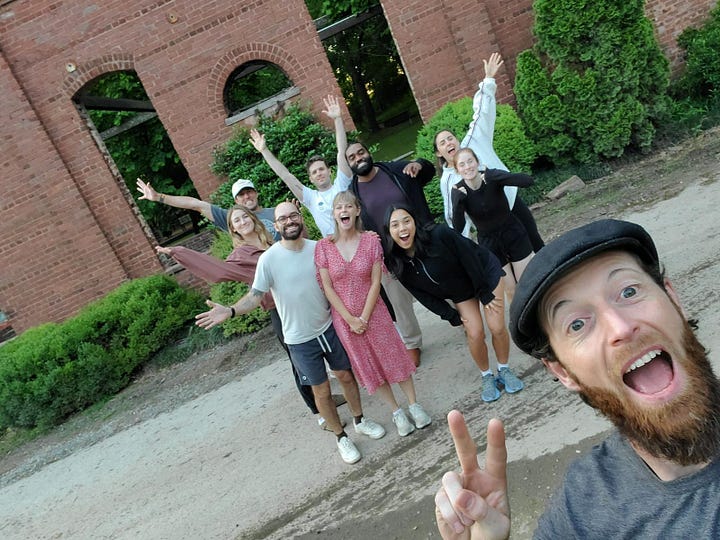
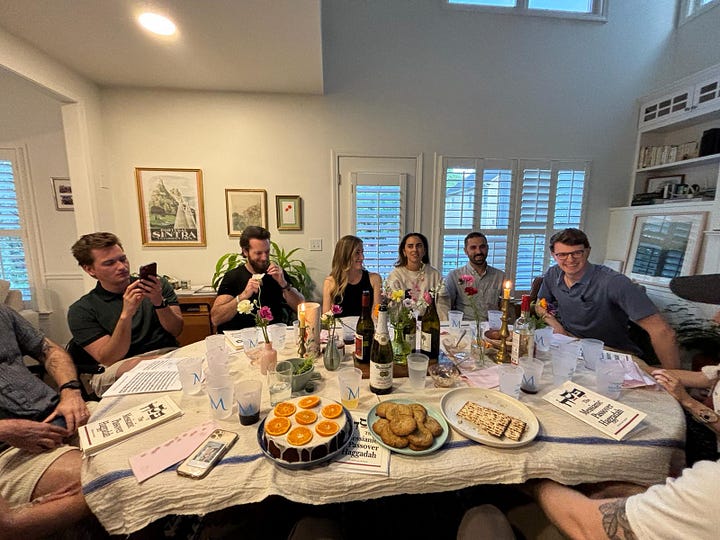
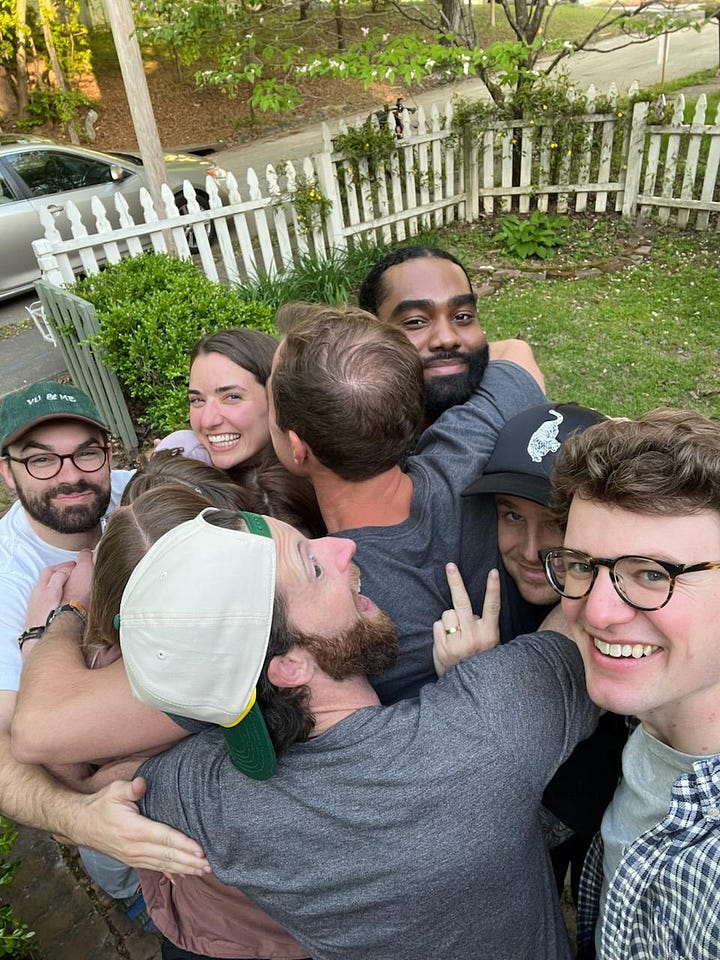
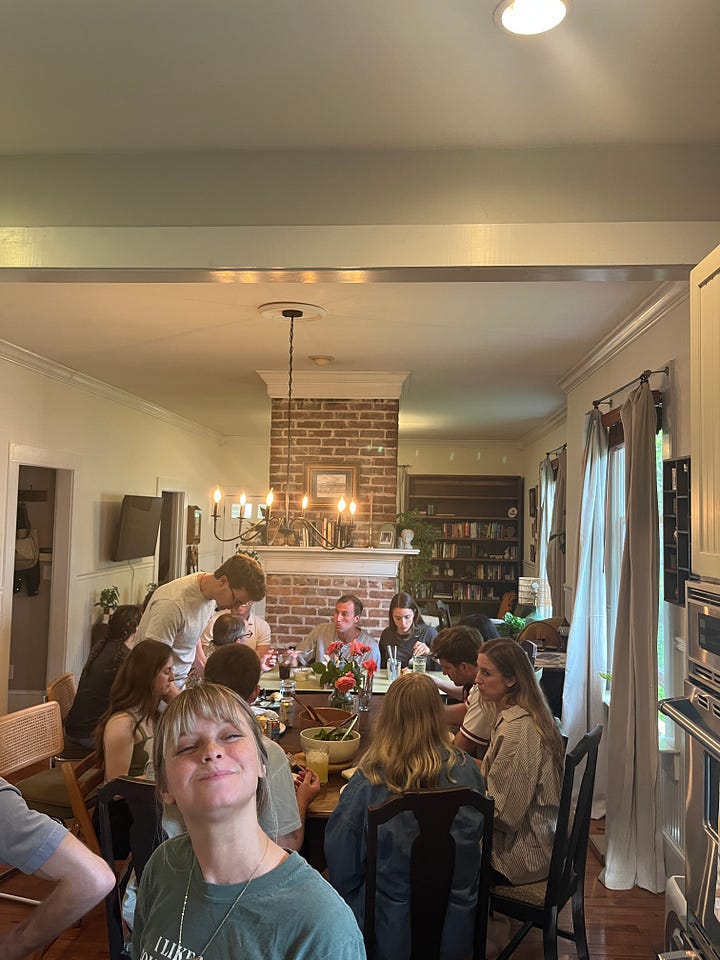
Avoid (A)Insanity
Richard Rohr once assigned countries an Enneagram number. He labeled the US as a three, The Achiever. This type is success-oriented and image-conscious. They’re highly motivated by a desire to be seen as valuable and successful, thriving on recognition and often tying their self-worth to their accomplishments. Achieving fires them up more than anything.
If we’re not cautious, AI can be gasoline on the American fire that’s already out of control. It can lead us to insanity, where we use a new tool to try the same method of achieving our way to happiness, while expecting different results.
Sabbath is a counteracting response to the pull of AI. It’s only a start, but it’s the perfect playground for practice. You get 24 hours every week to intentionally focus on being, not doing. Twenty-four hours of delighting in your truest identity will have a ripple effect that flows into your week. As Walter Brueggemann said, “People who keep the Sabbath live all seven days differently.”
I’ll continue using AI since it’s a remarkable tool that helps me get my boulder up the mountain quicker. But I hope we’ll all develop practices that remind us we aren’t slaves to the climb.
✌️
— Luke
P.S. Here are a few other practices I’ve enjoyed that help me embrace less, slower:
Writing postcards
Reply with your address and I’ll send you one.
Playing board games
Splendor, Bananagrams, and Ganz Schön Clever are our faves.
Taking pictures with my point-and-shoot film camera
I used my grandfather’s Minolta Talker until it recently stopped working 😢
Planting stuff
“If you work with your mind, Sabbath with your hands. If you work with your hands, Sabbath with your mind.” — Abraham Heschel
Sitting on our porch swing
Sarah and I recently inherited my parents’ porch swing. It’s my favorite place for hanging out with no agenda.
This prayer labyrinth at Berry College
It even has a podcast series to guide your thoughts through the walk.
What about you?
I’d love to hear how you enjoy doing less, slower.
P.P.S. I’m back at girls’ summer camp with Sarah Bo Berry Blendz. They call me Bro Berry. Some call me Mr. Blendz, but that one freaks me out tbh. Long days for Sarah and no friends for me mean I have a lot of margin for less, slower. I’m going on shorter runs and longer walks, trying to lift stuff in the gym, listening to podcasts, reading books, and doing my best to avoid YouTube rabbit holes.
Here are 5 pieces of content I’ve enjoyed so far this summer. Reply and let me know if you have any pieces of content I should check out.
📚 Theo of Golden: When my pastor mentions a book, I start seeing it more on my Goodreads. This is one of those books. It’s a delightful story of a mysterious, old man who shows up in a small Georgia town and starts gifting people portraits.
📚 The Brothers K: Not the Russian classic. An American spin-off about a dysfunctional family full of boys, baseball, and broken hearts. Shoutout to Andrea P. for the rec.
🎙️ The BEMA Podcast: This podcast continues to blow my mind by unpacking parts of the Bible that have gone completely over my head. It leans into historical context and rabbinical teachings to give you a fresh way to see the stories you thought you knew. Shoutout to Joel N. for the rec.
🎙️On Being: Richard Rohr — Growing Up Men: An oldie but a goodie that covers why contemplation is so popular and how much of male formation is driven by what he calls “father hunger.” He says, “Unless the male is led on journeys of powerfulness, he will always abuse power.” Shoutout to Jeremy M. for the rec.
📺 Escape to River Cottage: From 1999, a London chef leaves the big city to live off the land in the countryside of England. He gardens, raises animals, bonds with locals, and cooks some of the most bizarre meals I’ve ever seen. It’s as quirky and pure as TV gets. Shoutout to Matthew M. for the rec.
THERE’S MORE! Here are some of my favorite views from my runs in North Georgia.
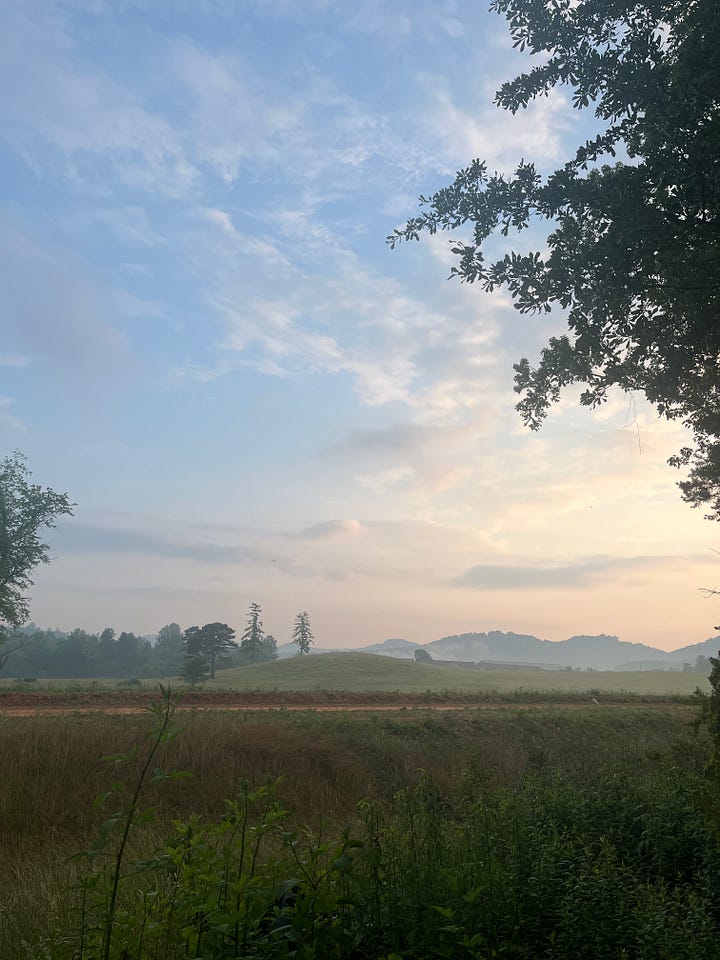
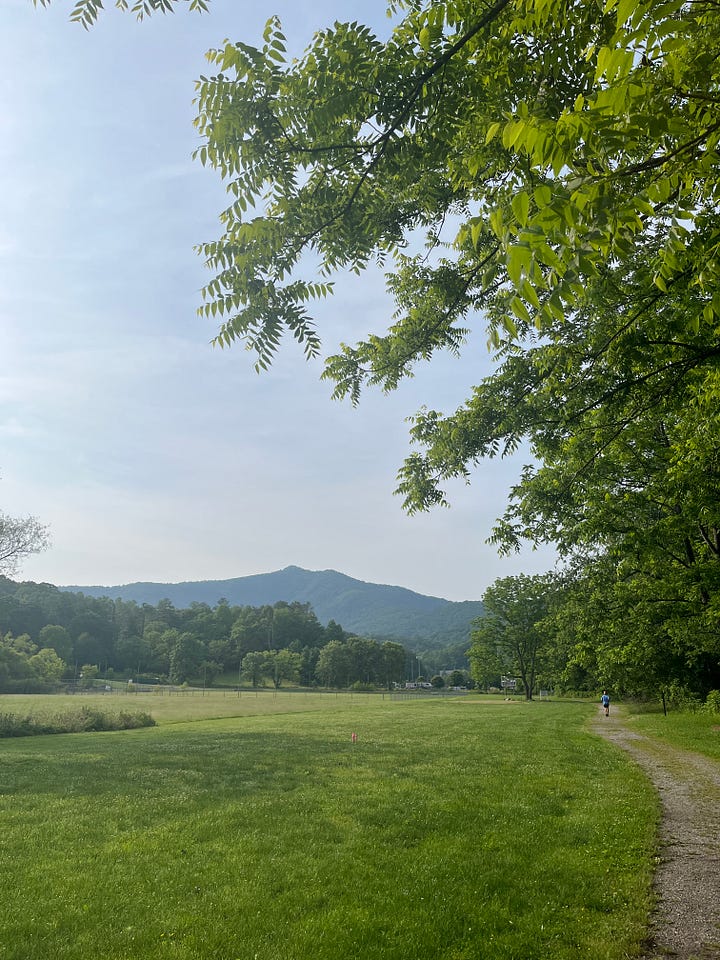
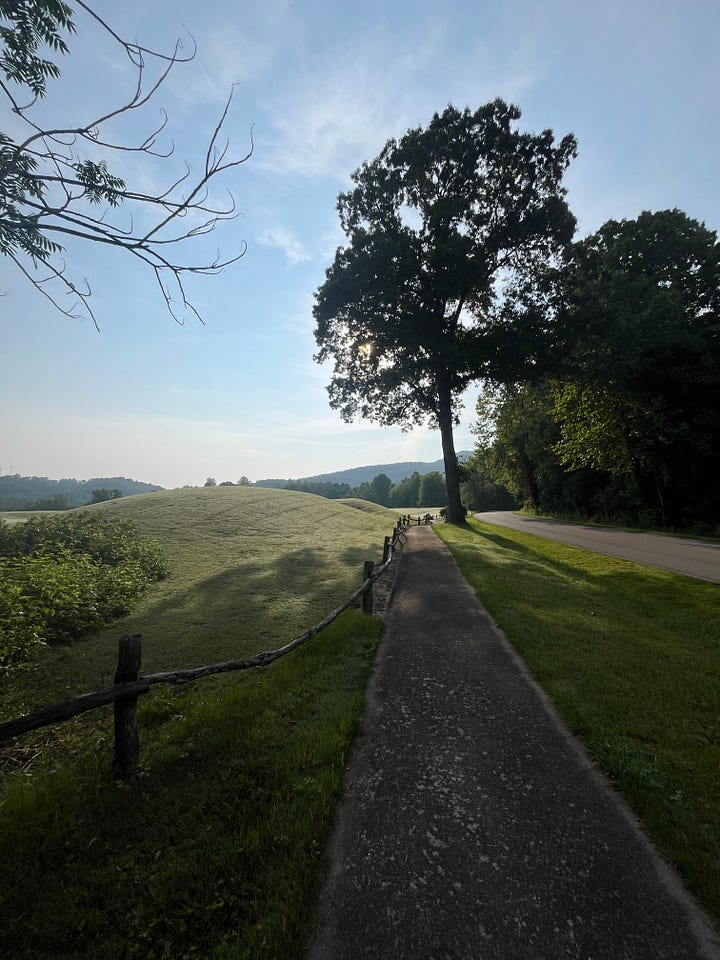
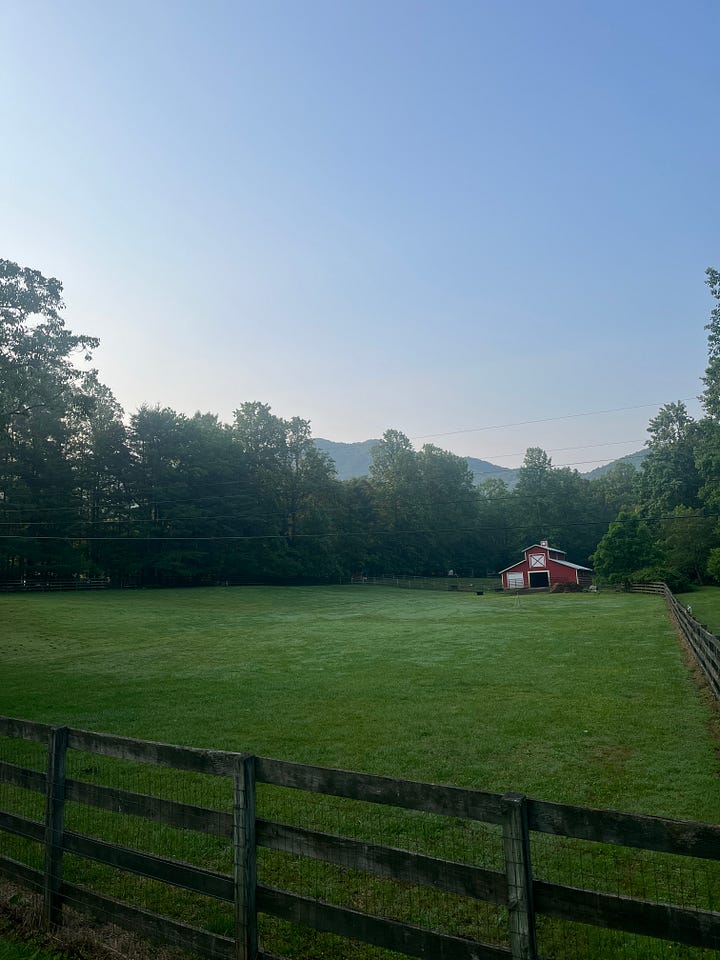




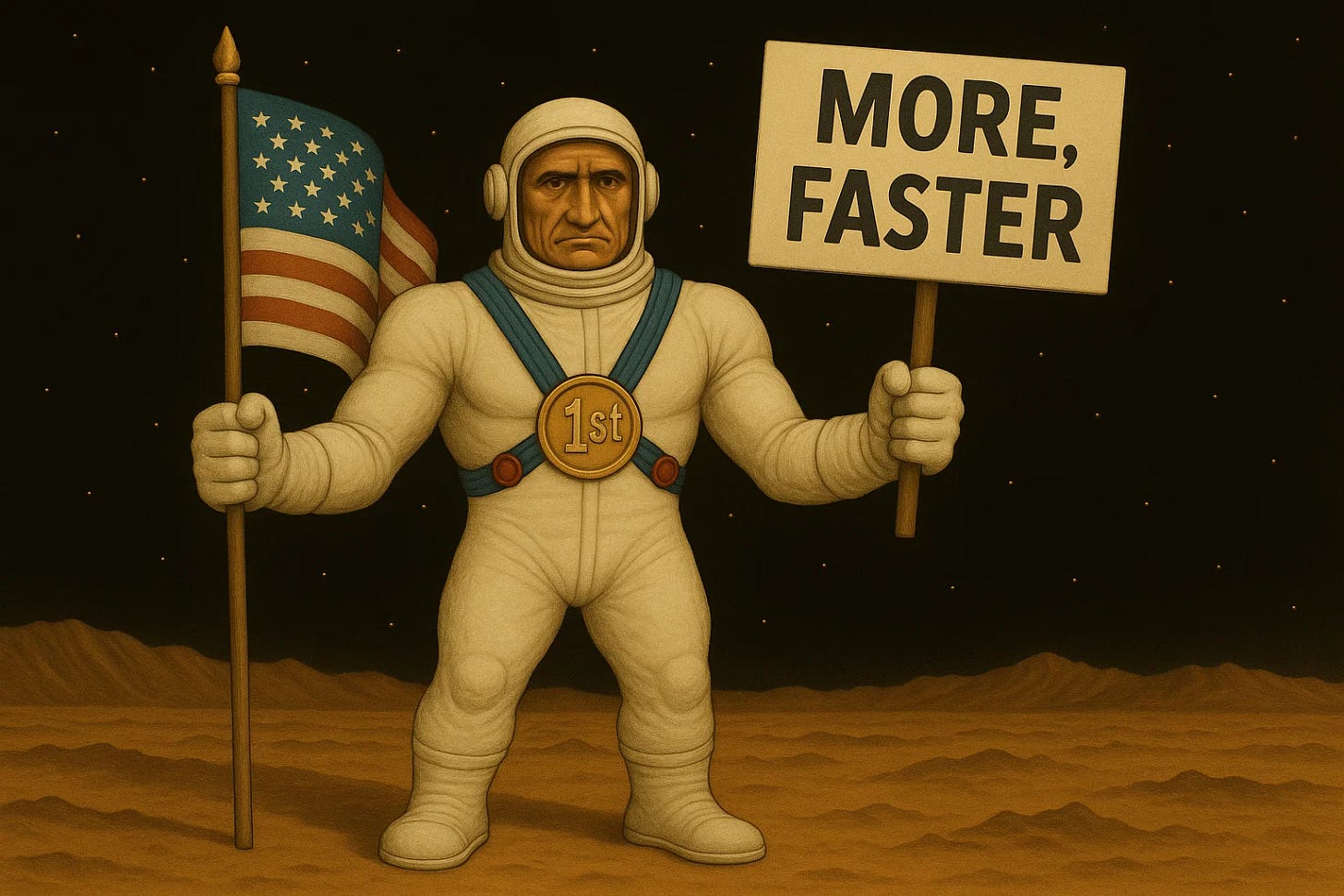




Luke, this is wonderful. Have you read Supper of the Lamb by Robert Farrar Capon?
It’s one I’ve come back to over the years because he really captures a lifestyle of appreciating things for their thingness and being resistant the pull of efficiency.
Great read! And the group hug photo is adorable!